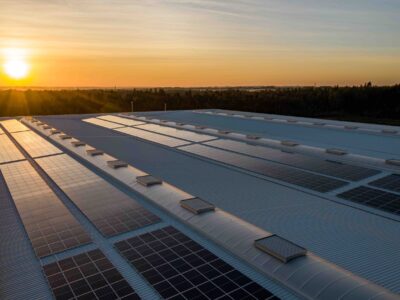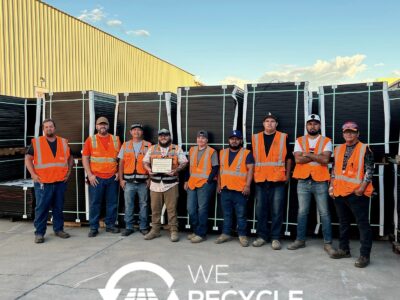With the world population closing in on 8 billion people, the quest for natural resources is becoming more important than ever before. While a few industries are beginning to understand that some raw materials are scarce, many are still looking to invasive and antiquated methods of extracting materials from the earth.
However, some changes are occurring. Solar and wind power are being used to replace fossil fuels, manufacturing is turning to recycled plastics over raw materials, and thanks to San Francisco materials startup, Twelve, captured carbon dioxide could be used to produce the building blocks of a wide variety of everyday products.
The company was founded by Stanford engineers Drs. Etosha Cave and Kendra Kuhl, who made groundbreaking discoveries in carbon dioxide electrocatalysis at the world-renowned Jaramillo Group at Stanford. The two joined with entrepreneur and fellow Stanford alum, Nicholas Flanders to start Opus 12, which later became Twelve.
Using a process similar to photosynthesis, the engineers at Twelve use renewable electricity to break down CO2 and water into chemical building blocks.
These building blocks, like ethylene, can be used in everything from washing detergents, car glass, foams, plastics, and even jet fuel. “They’ll be identical to conventional products [but] made from recycled emissions,” said Nicholas Flanders.
At an industrial level, Twelve’s artificial photosynthesis process has the potential to revolutionize the global economy. It reduces emission from supply chains, and provides a pathway to close the carbon loop, creating circular economies free from the wasteful and harmful end-of-life systems currently in place across industries. In addition, it is able to replace the use of petrochemicals and produce products that are as good, if not better quality than petrochemical-based products. This is especially significant considering many industry giants are pushing to make the switch away from petrochemicals in the coming years in order to meet climate demands. As a whole, Twelve’s process could help tackle up to 10 percent of all global carbon emissions.
While Twelve is one of the first companies to successfully bring this process to market, artificial photosynthesis technology has existed since the early 1960s. But, until recently, the inability to reproduce it efficiently at scale presented a significant barrier to it reaching the market. Fortunately, the innovations from Twelve have made the process industrially viable. In previous iterations, the process utilized a single unit to convert solar energy and split the water molecules. The Twelve engineers realized that it was more scalable and efficient to separate the steps. The result is a carbon-negative process that is equipped for industrial demand.
Since starting the organization in 2015, the organization has worked with some very high-profile brands.
While its sunglasses collaboration with materials science and clothing brand Pangaia may have put them in the spotlight, Twelve has been quietly partnering with Mercedes-Benz, Procter and Gamble, the United States Air Force, and NASA.
Their partnership with Mercedes-Benz last year resulted in the production of the world’s first auto part made from recycled CO2, their technology helped the US Air Force develop CO2-based jet fuel, and their work with NASA is helping engineer everything from sustainable materials to fuels, and even fresh air for future space exploration.
While the engineers at Twelve are already partnering with some of the world’s foremost organizations, the San Francisco startup will look to grow even more since securing $57 million of Series A funding from investors. “We’re compelled by the opportunity to eliminate rather than offset carbon emissions, and Twelve has the technology to make it happen as costs of carbon capture, renewables and electrolyzers are falling,” says Ion Yadigaroglu, Partner of the Technology Impact Fund and Capricorn Investment Group.
Twelve’s innovative technology is already influencing revolutionary change across industries. It has brought the possibility of a circular economy closer than ever before and could bring even further-reaching possibilities in the fight against climate change. However, most importantly, it will allow the world to view carbon dioxide as an opportunity, not a threat.





